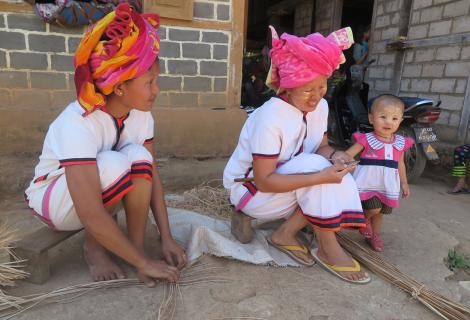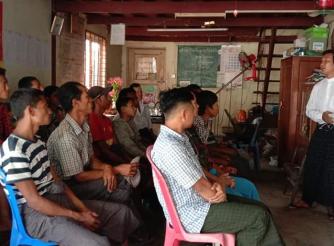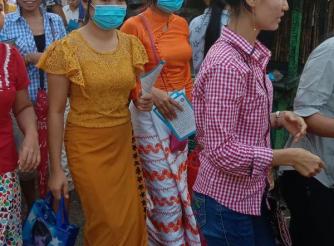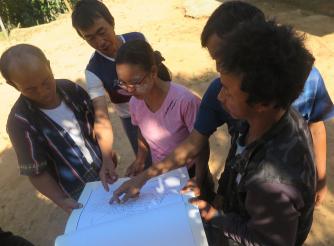Land registration; an act of empowerment

Written by December Khaing, Communications Coordinator
Kan Hla village is a small village located in Pinlaung Township of southern Shan State. In 2005 the state
government officials built a dam that resulted in significant damage to the surrounding area and
ultimately the uprooting of the entire Kan Hla village. The dam had caused adverse effects to such a degree
that farms and homes across 23 surrounding villages were affected. The government accepted responsibility for the damages suffered by the 23 villages and provided financial renumeration, as well as 429 acres of land to Kan Hla village. This however brought with it new problems. Without an existing system of registering land ownership, the 429 acres were allocated randomly and without documentation. The hilly region of Kan Hla meant that villagers were not even able to measure their lands properly. While it has been commonplace not to register customary-held land handed down from generation to generation, this new allocation of land was different.
Shwe Kanbawza (SKBZ) is a local CSO based in Pinlaung township, with five designated (mostly
voluntary) staff and 16 volunteer community organisers. Their aim is to build a democratic society by
encouraging the active engagement and participation of women and civil society organizations. They
have, in the past, focused on women’s empowerment through livelihood projects such as community
rice banks and women’s self-reliance groups, of which 34 now exist. In 2018 SKBZ was awarded a
small sub-grant by the ECCSO project that allowed them to provide training to communities on the
land laws of Myanmar, among other things. The trainings were designed to encourage active
engagement of women by including issues such as women’s rights, gender equality and women’s
rights to land ownership. The training also stressed the importance of registering land as proof of ownership and protection against fraudulent claims from ‘outsiders.’ But the trainings themselves were not without their challenges.
The villagers were concerned about the costs associated with land registration, land taxes that may then be
imposed, and their general distrust and lack of contact with government officials. In the case of Kan Hla there
was also the cost of having the land properly surveyed and a land ownership map drawn up. SKBZ worked
with these concerns, maintaining its aims of increasing understanding of the laws and regulations on
land/property ownership, increasing engagement of local communities with government departments
and the opening of lines of communication that set the way for future dialogue, information sharing
and empowerment.
The people of Kan Hla finally decided to register their lands but did not have the knowledge or
resources to have their lands surveyed. SKBZ approached the ECCSO for support and a contract
amendment was granted to include the cost of the land survey. This survey has now been completed
and the registration process is well underway. The new farm lands will soon be officially owned by
the people of Han Hla village, many of whom will be women. Following the successful land
registration in Kan Hla, other villages are expected to follow suit.


